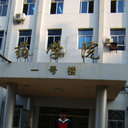Castanea mollissima shell prevents an over expression of inflammatory response and accelerates the dermal wound healing.
Paraules clau
Resum
BACKGROUND
Castanea mollissima shell (CMS) has been used for wound healing in China as traditional medicine. The shell is directly applied on the wounded skin as fine powder or as water maceration.
OBJECTIVE
To investigate the wound healing activity of CMS and the potential mechanism of anti-inflammatory activity.
METHODS
The effects of ethanol extract of CMS (ECMS) on nitricoxide (NO), tumor necrosis factor (TNF)-α and interleukin (IL)- 6 productions in lipopolysaccharide (LPS)-treated RAW 264.7 cells were explored by enzyme linked immunosorbent assay (ELISA) in vitro. To study wound healing properties of ECMS in vivo, excision and incision wound models were performed on rats. Inflammatory cytokines from wound biopsies such as NO, TNF-α and IL-6 production were tested by ELISA. mRNA levels of iNOS, cyclooxygenase (COX) -2 and TNF-α were detected by real-time Polymerase Chain Reaction (PCR), and protein levels of IL-1β and Heme Oxygenase (HO) -1 were analyzed by Western blotting.
RESULTS
ECMS potently inhibited LPS-induced production of IL-6, NO and TNF-α in RAW 264.7 cells. The presence of quercetin, kaempferol, ursolic acid and gallic acid in ECMS might be responsible for its anti-inflammatory activity. 3% and 5% w/w ECMS significantly accelerated the wound healing process in both wound models, evidenced by the faster rate of wound contraction, epithelialization, increased hydroxyproline content, high tensile strength, decreased level of inflammatory markers compared to the control group. Histopathological studies also revealed the amelioration of wound healing by re-epithelialization, collagenation and vascularization of wounded skin sample in ECMS treated groups.
CONCLUSIONS
The experimental data revealed that CMS had ability to prevent exaggerated inflammation and accelerates wound epithelialization and might be beneficial for healing dermal wounds.




